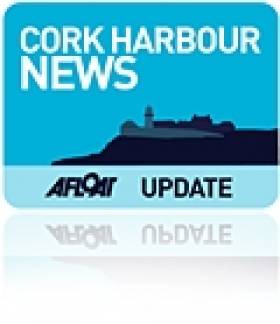Displaying items by tag: Port of Cork City Marina
65–Knot RIB for Cork Harbour Open Day
Further free family events are planned to take place around the harbour as part of Cork Harbour Open Day, such as the World Rescue Challenge on North Custom House Quay, the Irish Navy's LE Aoife will be open to the public for tours of the ship on Horgan's Quay, Cobh Tourism have organised a crab fishing event along the promenade in Cobh, while ten free tickets for a tour on Spike Island are being given away by tour guide Michael Martin, see www.corkharbour.ie for more details.
In Crosshaven there will be farmers markets, coastal rowing championships, Camden Fort will be open to the public and an art exhibition by John Adams in mad Fish Restaurant, Cronin's pub. Crosshaven RNLI Station will be open to the public and the RNLI will also be carrying out free Sea Safety checks on lifejackets throughout the day at the Port of Cork City Marina. While in Cobh the annual Cobh to Blackrock sailing race will start at 12 noon from Cobh.
Blackrock Castle Observatory will be open to the public for free tours of the tower, where people will get a bird's eye view of the boats as they pass Blackrock. Spectators are encouraged to come out and watch the boats as they race up to Blackrock and continue on to the Port of Cork City Marina. Atlantic Sea Kayaking are also offering a 2 for 1 deal for kayaking on the river Lee during the day.
Aimed at embracing what Cork Harbour has to offer, the Cork Harbour Open Day aims to raise awareness of the different activities available for people in the harbour both on and off the water.
The idea for a Harbour Open Day emerged from discussions between various stakeholders involved in the development and implementation of the Integrated Strategy for the Harbour. A group comprising representatives from UCC, City and County Councils and the Port of Cork set about working together to engage users of the Harbour and to organise the Open Day.
To get involved in Cork Harbour Open Day or to organise an event on the day, please visit www.corkharbour.ie or contact Sara Dymond at [email protected] or 021-4625375.
What: Cork Harbour Open Day
When: Saturday 4th September 2009
Where: Various locations around Cork Harbour
Info: www.corkharbour.ie






























































